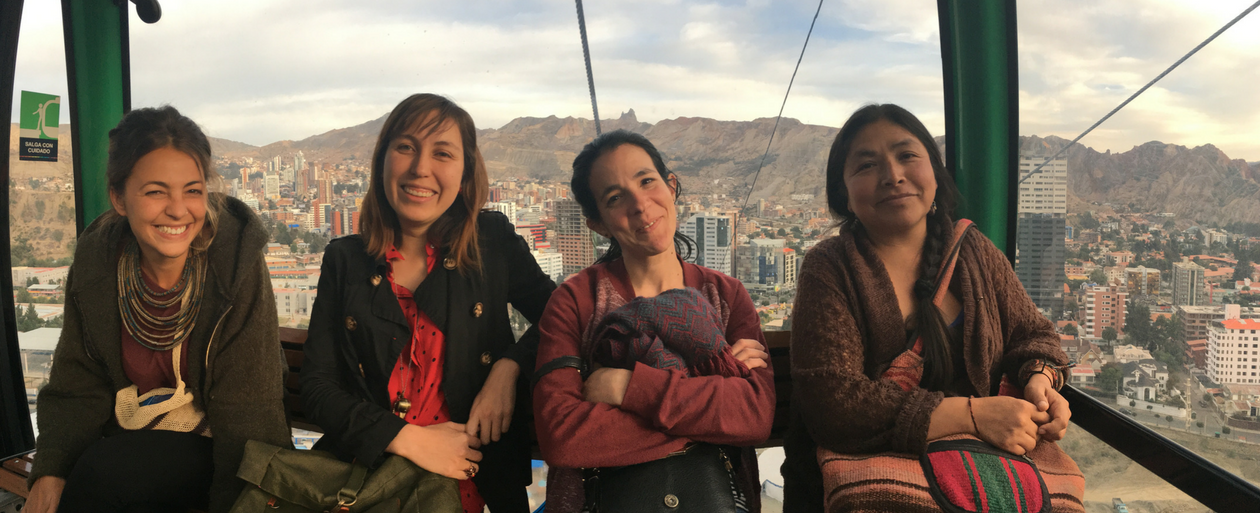
By Allison Davis, Deputy Director of Programs, Global Greengrants Fund
An article was recently published in The Chronicle of Philanthropy, asking the question, has the time come for foundations to explore the use of participatory grantmaking? In it, Chris Cardona from the Ford Foundation and Cynthia Gibson from the Case Foundation, explore the idea that foundations should make their grantmaking processes participatory, allowing people from outside their institutions to help set priorities, develop strategies, and sit on their boards. We welcome this article, the discussion of the topic, and respond today to encourage continued dialogue on the subject.
The topic of participatory grantmaking is important here at Global Greengrants Fund, as it is tied to our very founding. Since we began in 1993, all of our grantmaking decisions are made by outside advisors from the regions and communities where we work. They are respected experts and social change leaders located in the context, who work together to peer review grants. Today our network of 160 advisors is key to the effectiveness of our grantmaking.
In the article Chris Cardona and Cynthia Gibson might call these advisors “outsiders”, meaning that they are not paid staff with Global Greengrants, but we might say they have more “inside” knowledge than our small staff will ever have. As environmental leaders, lawyers, and organizers, they have deep knowledge of the environmental, organizational, and socio-political landscape, and are chosen based on their reputation with grassroots actors and their demonstrated service to the communities we support.
At Global Greengrants Fund, we strive to bring more diverse ideas and voices to environmental and social movements by giving grants directly to community organizations with their own ideas, dreams and solutions. Being participatory is more than soliciting outside advice, it also means collaborating with those at center of the work to generate the ideas. Grants are more successful and likely to endure when people at the center of the work feel ownership of the ideas and action. We believe there is a strong place in philanthropy for expanding access to grants in solidarity with people’s existing ideas. Philanthropy needs to have wide and inclusive reach: not only should philanthropy support strong, proven and effective local NGOs like those of our advisors, but we also see these local experts as key to expanding participation in change.
For example, our advisors in the Pacific Islands are respected environmental and social leaders who peer-review grantmaking ideas that they bring to their advisory board. One of these local leaders, Willy Kostka, co-founder of the Micronesian Conservation Trust in the Federated States of Micronesia, recommended a series of grants that support groups trying to stop overharvesting of sea cucumbers by Chinese industrial interests around the islands.
One such grant supported Senpehn Connection Sensation, a group of traditional singers who wrote a song to influence traditional chiefs serving in Parliament to preserve the sea cucumbers, and another grant was given to the local biology club to research the impacts of harvests on sea cucumber population dynamics. When the harvest was banned in 2017, many people across the island were able to take collective credit for the solution.
Twenty-five years into our participatory grantmaking model, we’ve learned a great deal about the advantages and unexpected results that come with increasing participation in philanthropy. We’ve taken this model further and established independent grantmaking funds in five regions of the world to support community-led environmental grantmaking, and more recently involving youth climate organizers as grantmakers on our Next Generation Climate Board. We truly appreciate the many years of investment and collaboration from the Ford Foundation and other funders that have seen the value in doing philanthropy differently.
Involving knowledgeable actors and community members in making decisions about what and who to fund, and putting a high premium on learning from people and their existing initiatives in ways that give them ownership of ideas and actions — this is all good practice, at any scale of grantmaking.
